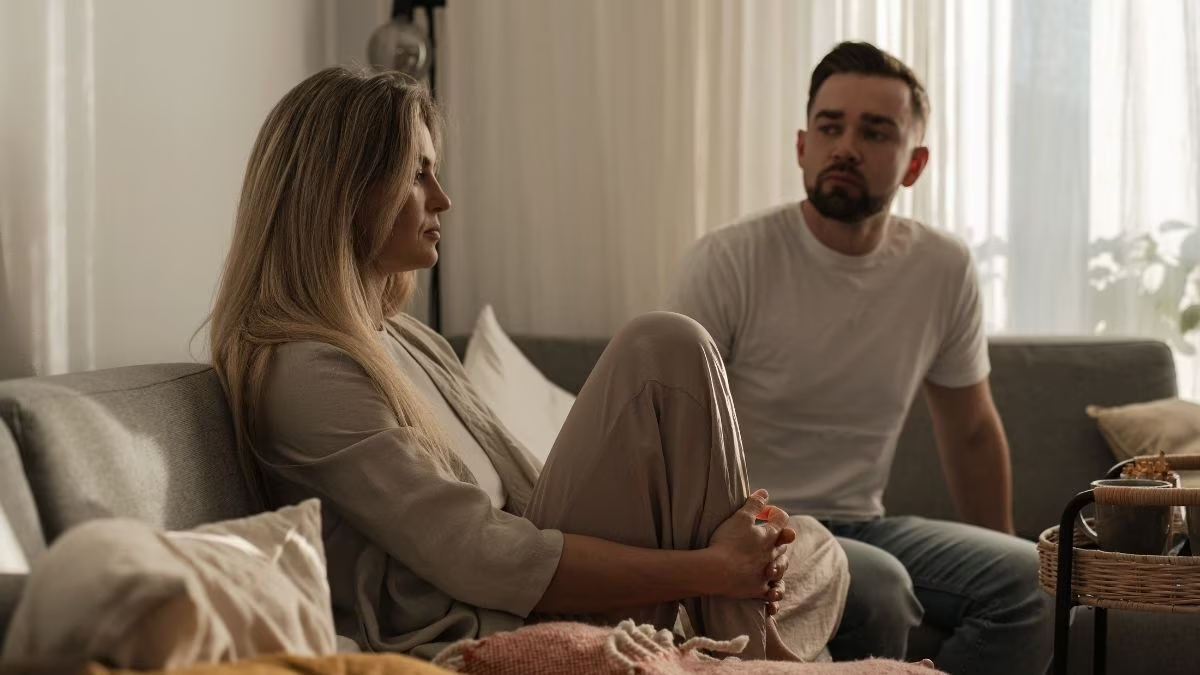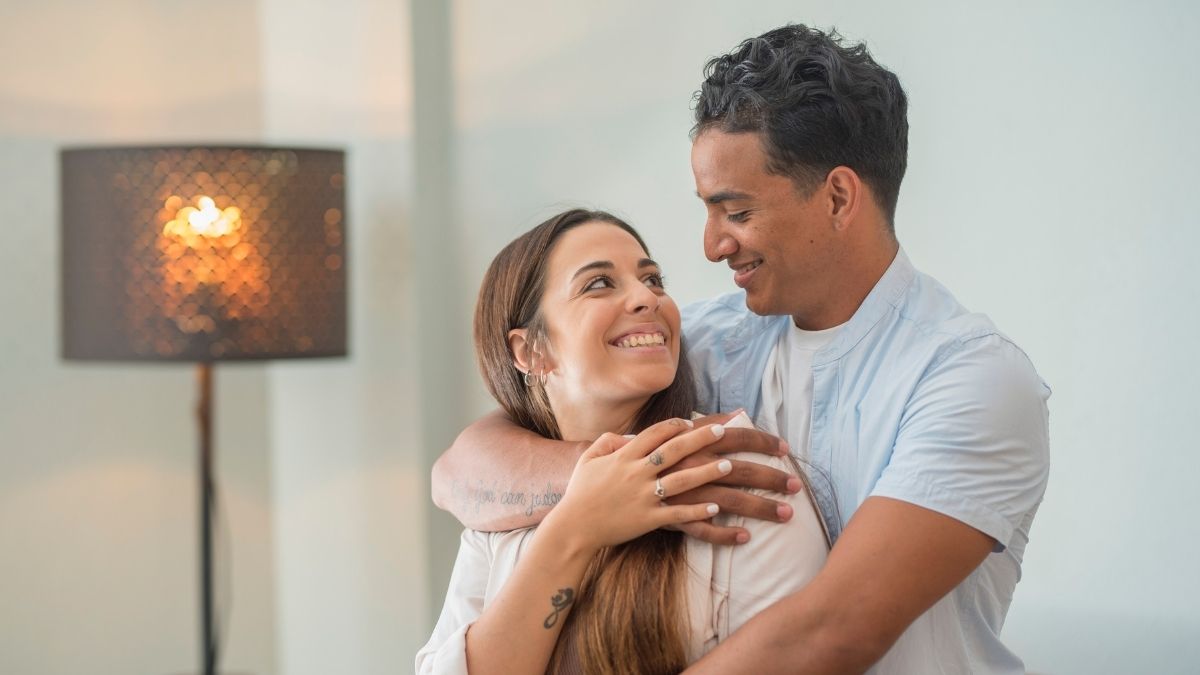o matter how strong your relationship is, conflict is bound to happen. Maybe it’s the never-ending battle over the thermostat, or perhaps it’s something deeper—like feeling unheard, unseen, or unappreciated. Conflict itself isn’t a sign that your relationship is failing. In fact, when handled well, it can actually strengthen trust, improve communication, and deepen emotional connection.
It’s important to understand what causes conflict, learn how to resolve it in a constructive way, and break unhealthy patterns before they take hold. Let’s dive into what relationship conflict really means and how to navigate it in a way that brings you closer rather than pushing you apart.
Understanding the Nature of Relationship Conflict
What Causes Conflict in a Relationship?
Conflict in a relationship is rarely just about the specific disagreement at hand. More often than not, it stems from deeper emotional triggers, unmet needs, or differences in communication styles.
Some of the most common causes include unmet expectations, poor communication, attachment styles, and power struggles. When one partner assumes the other will handle something a certain way—whether it’s managing finances, household chores, or offering emotional support—but never explicitly discusses it, frustration builds.
Power struggles, like who makes financial decisions, how time is spent, or whose priorities take precedence, can also create friction—especially if one partner feels unheard or undervalued.
Communication also plays a huge role. If partners struggle to express their thoughts or listen without defensiveness, misunderstandings happen, leading to feelings of resentment or disconnection.
Attachment styles add another layer to the mix. Someone who craves closeness might feel rejected when their partner needs space, while someone who needs space might feel suffocated when their partner seeks reassurance. If these mismatched needs aren’t understood, tension can build.
Healthy vs. Unhealthy Conflict in Relationships
Not all relationship conflicts are the same. In fact, experts often distinguish between healthy conflict and unhealthy conflict. Healthy conflict is constructive, empathetic, and focused on finding solutions. For example, you and your partner might disagree about finances but take turns listening, clarify each other’s perspectives, and work toward a shared plan. This kind of back-and-forth can actually build trust and understanding.
Unhealthy conflict in relationships looks very different. Instead of listening and problem-solving, it often turns hostile, avoidant, or repetitive. Signs include rolling your eyes during arguments, walking away without resolving anything, or rehashing the same fight about chores week after week without progress. These patterns erode emotional safety and can leave both partners feeling unseen or dismissed.
The presence of conflict isn’t the problem—it’s how it’s handled. Couples who practice healthy conflict use disagreements as opportunities to better understand one another, while unhealthy conflict leaves both people stuck in blame or withdrawal. Recognizing these signs helps you catch destructive patterns early and shift toward healthier communication.
The Emotional and Physical Impact of Unresolved Conflict
When conflict goes unresolved, it doesn’t just affect the relationship—it can take a serious toll on both mental and physical health. Emotionally, unresolved conflict can create stress, anxiety, and even depression, making it harder to maintain intimacy. Instead of working as a team, couples may start seeing each other as opponents, becoming more defensive and less open to compromise.
Physically, relationship stress can lead to increased cortisol levels, poor sleep, and even a higher risk of heart disease. When conflicts linger without resolution, partners may begin to withdraw emotionally, stacking small frustrations on top of past ones until everything feels overwhelming.
That’s why it’s so important to address conflict early, rather than brushing it under the rug. When conflict is handled with care, it not only strengthens the relationship but also improves overall well-being.
Examples of Common Relationship Conflicts and Their Patterns
Every couple faces recurring disagreements, and while the topics may vary, the underlying patterns are often similar. Common triggers include household chores, financial stress, intimacy mismatches, and parenting differences. For example, one partner may feel like they’re carrying more of the household load, while the other feels criticized no matter what they do.
Misunderstandings—like assuming silence means disinterest, when it may actually mean stress—can quickly turn small issues into recurring fights.
Even external pressures, like extended family involvement or work demands, can spark conflict if they’re not openly discussed. Recognizing these common triggers and patterns helps couples see that many conflicts aren’t about who’s “right” or “wrong,” but about misaligned expectations and needs.
Resolving Conflicts in Intimate Relationships
Practical Ways to Resolve Conflict in Relationships
Healthy conflict resolution is about learning how to engage in disagreements in a way that brings clarity and connection instead of distance. One of the best ways to do this is through active listening. Instead of focusing on what you’re going to say next, really listen to what your partner is expressing. Reflect their words back to them to ensure they feel understood before offering your perspective.
Respect is another crucial ingredient. Conflict often escalates when partners become dismissive, sarcastic, or disrespectful. Keeping interactions respectful, even in tense moments, allows for a more productive conversation. Setting boundaries around when and how conflicts are discussed can also help. Arguments that happen in the heat of the moment—when one or both partners are exhausted or overwhelmed—often spiral out of control. Agreeing to have discussions when both people are calm can make all the difference.
Recognizing personal triggers can also prevent unnecessary escalation. Often, conflicts intensify not because of the current disagreement, but because one or both partners are reacting to past emotional wounds. Identifying these triggers and discussing them openly can help couples respond with understanding instead of defensiveness.
And finally, using “I” statements instead of blame-based language can completely shift the tone of a conversation. Instead of saying, “You never listen to me,” try, “I feel unheard when I try to share my thoughts, and I’d really appreciate it if we could talk this through together.” This small shift makes it easier for your partner to hear you without getting defensive.
Complex Conflict Resolution with Your Partner
Some conflicts go deeper than surface-level disagreements and require more intentional strategies. For couples who feel stuck in repetitive arguments, techniques like retrospective debriefs can help—taking time after a disagreement to reflect on what worked, what didn’t, and how to handle it better next time. Conflict mapping is another approach, where couples visually lay out the recurring cycle of their arguments to identify triggers and turning points.
Emotional vulnerability is key here. Sharing what’s really underneath your frustration—whether it’s fear, insecurity, or the need for reassurance—can shift the conversation away from blame and toward mutual understanding. These strategies allow couples to break free from unhelpful cycles and address conflict at its roots, rather than just patching over surface issues.
Why Couples Therapy Can Help
Even with the best communication strategies, some conflicts can feel impossible to navigate alone. This is where couples therapy can make a huge difference. Having a neutral third party guide discussions can help couples identify conflict patterns, learn more effective ways to communicate, and build a stronger emotional foundation. A therapist can also provide tools to improve emotional regulation, ensuring that disagreements don’t escalate into full-blown arguments.
If you find yourself stuck in repetitive conflicts, couples therapy can help you break free from the cycle and move toward a more secure, connected partnership.
Tools for Navigating Conflict Productively
Tools like structured check-ins, conflict mapping, or guided exercises from digital platforms such as OurRitual can provide support. These resources help couples stay mindful, communicate clearly, and address small issues before they grow into larger ones.
Once couples learn to navigate conflict in a productive way, they often experience deeper trust, stronger emotional safety, and more mutual respect. Arguments become less about proving a point and more about understanding each other. When conflicts are resolved with care, relationships don’t just survive—they thrive.
Relationship Conflict FAQs
How can I recognize unhealthy conflict in my relationship?
Unhealthy conflict often feels repetitive, unresolved, or emotionally draining. Signs include constant defensiveness, sarcastic communication, stonewalling, or avoiding discussions altogether. If your disagreements leave you feeling more disconnected instead of closer, that’s a clear red flag.
What distinguishes unhealthy conflict in relationships from healthy conflict?
Healthy conflict in relationships is solution-focused and respectful, even in tense moments. Partners may raise difficult topics but still feel heard and valued. Unhealthy conflict, on the other hand, tends to be hostile, avoidant, or dismissive—leaving both people stuck instead of moving forward.
What is relational stress and how does it escalate conflict with a partner?
Relational stress is the tension that builds when relationship issues go unresolved. Over time, it increases emotional reactivity, making partners more likely to argue, misinterpret each other’s intentions, or fall back on unhealthy communication habits.
How can frequent, unresolved conflict affect my physical health?
Research shows that ongoing relationship stress can lead to poor sleep, high blood pressure, weakened immunity, and increased risk of cardiovascular issues. The body responds to unresolved conflict much like any chronic stressor.
How do I shift from unhealthy to healthy conflict in relationships?
Start by focusing on active listening, respecting your partner’s perspective, and using “I” statements instead of blame. Pay attention to your own triggers and practice self-regulation before entering difficult conversations. Over time, these habits shift communication patterns in a healthier direction.
What tools can help couples practice healthy conflict resolution?
Tools like structured check-ins, conflict mapping, or guided exercises from digital platforms such as OurRitual can provide support. These approaches offer structure, help break cycles of defensiveness, and encourage both partners to express themselves constructively.
When should partners seek therapy to resolve persistent relationship conflicts?
If the same issues keep coming up despite your best efforts—or if conflict escalates into emotional withdrawal or hostility—it may be time to seek professional support. Couples therapy provides a neutral space to address issues that feel too big to handle alone and helps partners rebuild connection through guided communication.






















